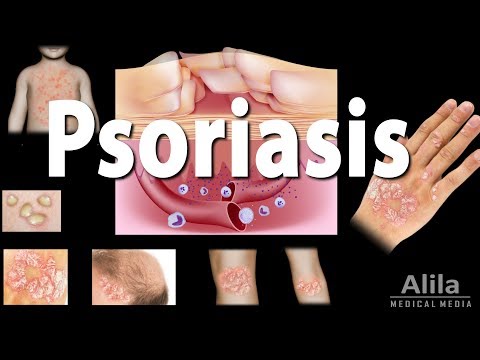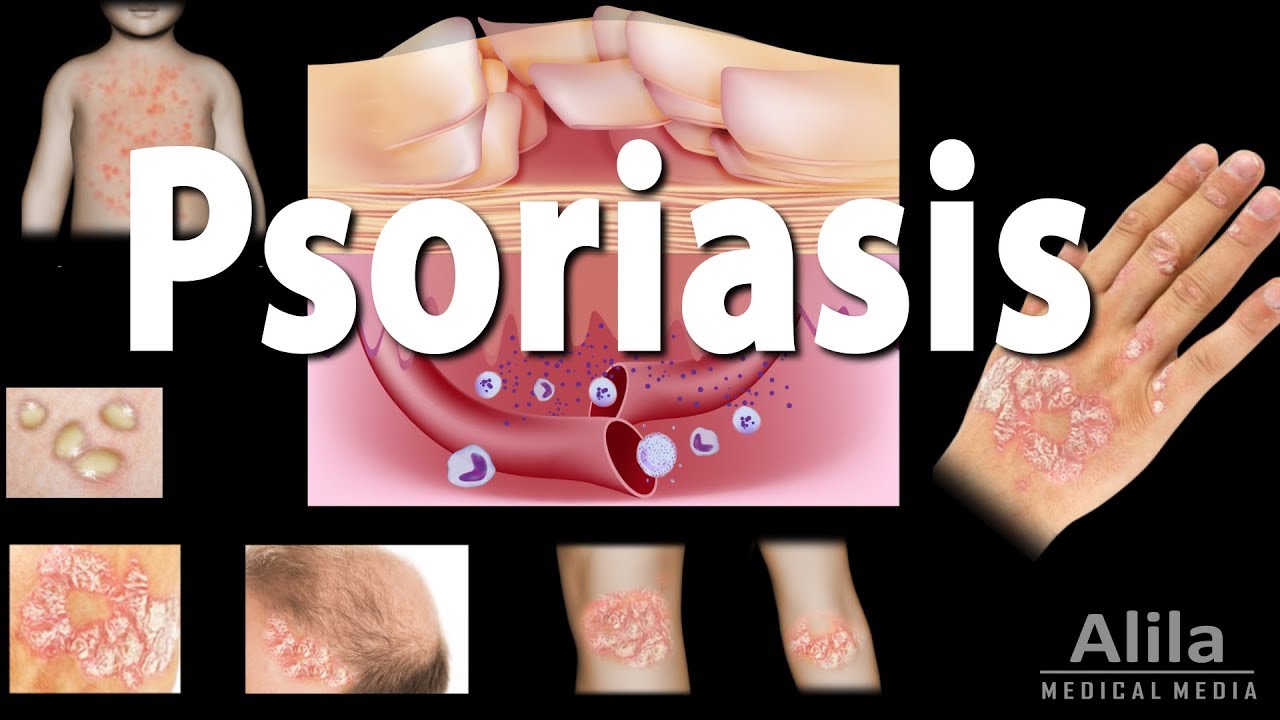Psoriasis is a chronic, autoimmune skin condition that affects millions of people worldwide. This intriguing disorder manifests as raised, red patches covered with silvery scales, which can appear anywhere on the body. With its unpredictable nature, psoriasis can cause discomfort, pain, and embarrassment, impacting not only an individual's physical well-being but also their emotional and social life. Understanding the intricacies of this inflammatory disease is essential to finding effective treatments and management strategies. Researchers are constantly unraveling the mysteries surrounding psoriasis, delving into its genetic and environmental triggers, immune system responses, and potential links to other health conditions. By exploring the latest breakthroughs in treatment options, including topical creams, oral medications, light therapy, and even biologics, individuals with psoriasis can discover hope for achieving clearer skin and a better quality of life. Stay informed about the latest advancements in psoriasis research and treatment to empower yourself or a loved one living with this complex condition.

Psoriasis: A Comprehensive Overview
| Aspect | Description |
|---|---|
| Definition | Psoriasis is a chronic autoimmune skin condition characterized by the rapid overproduction of skin cells, resulting in the formation of thick, silvery scales and inflamed, red patches on the skin. |
| Causes | Although the exact cause of psoriasis remains unknown, it is believed to be a result of a combination of genetic predisposition, immune system dysfunction, and environmental triggers such as stress, infections, or certain medications. |
| Symptoms | Common symptoms of psoriasis include raised, itchy, and scaly skin patches, dry and cracked skin, bleeding and soreness, nail changes, joint pain, and even psychological distress due to the visible nature of the condition. |
| Types | Psoriasis can manifest in various forms, including plaque psoriasis (most common), guttate psoriasis, inverse psoriasis, pustular psoriasis, and erythrodermic psoriasis. Each type presents distinct characteristics and affects different areas of the body. |
| Treatment | Treatment options for psoriasis focus on managing symptoms, reducing inflammation, and controlling the excessive growth of skin cells. These may include topical creams, phototherapy, systemic medications, and in severe cases, biologic therapies. |
| Impact | Psoriasis not only affects the physical well-being of individuals but also has a considerable impact on their mental health and quality of life. The condition can lead to feelings of embarrassment, social isolation, and even depression or anxiety. |
| Research | Ongoing research aims to unravel the complexities of psoriasis, improve diagnostic methods, and develop more targeted and effective treatments. Scientists are investigating the role of genetics, immune responses, and environmental factors to better understand the disease. |
Psoriasis is a multifaceted condition that demands a holistic approach encompassing medical, psychological, and social support to alleviate its impact on individuals and promote their overall well-being.
The Art of Psoriasis: Unveiling Types, Symptoms, Causes, Pathology & Treatment
Understanding Psoriasis: A Comprehensive Guide
Psoriasis is a chronic autoimmune condition that affects the skin, causing red, itchy, and scaly patches. It is estimated that around 2% to 3% of the global population suffers from this condition. While psoriasis is not contagious or life-threatening, it can significantly impact a person's physical and emotional well-being. In this article, we delve into the details of psoriasis, exploring its causes, symptoms, treatment options, and management strategies.
The Causes of Psoriasis
Psoriasis is a complex condition with no singular cause. It is believed to be a result of a combination of genetic, immune system, and environmental factors. People with a family history of psoriasis are more likely to develop the condition themselves. Additionally, certain triggers such as stress, infections, injuries to the skin, or even certain medications can exacerbate psoriasis symptoms.
Recognizing Psoriasis Symptoms
If you suspect you may have psoriasis, it is important to recognize the common symptoms associated with this condition. The most common symptom is the appearance of raised, red patches of skin covered with silvery scales. These patches can occur anywhere on the body, but they are most commonly found on the elbows, knees, scalp, and lower back. Other symptoms may include itching, dryness, and even pain or bleeding in severe cases. If you experience any of these symptoms, it is advisable to consult a dermatologist for a proper diagnosis.
Treatment Options for Psoriasis
Treating psoriasis involves managing the symptoms and providing relief to the affected individuals. The treatment options for psoriasis can vary depending on the severity and type of psoriasis. Topical treatments, such as corticosteroids and retinoids, are commonly prescribed to reduce inflammation and promote skin healing. Phototherapy, which involves exposing the skin to ultraviolet light, is another effective treatment option. For more severe cases, systemic medications, such as biologics or immunosuppressants, may be prescribed to target the underlying immune response causing psoriasis.
Managing Psoriasis: Lifestyle Tips
While there is no known cure for psoriasis, there are several lifestyle changes and self-care strategies that can help manage the condition and improve the overall quality of life for individuals with psoriasis. Moisturizing the skin regularly and avoiding harsh soaps or detergents can help reduce dryness and itchiness. It is also important to protect the skin from injuries or trauma, as they can trigger psoriasis flare-ups. Additionally, stress management techniques, such as meditation or therapy, can help minimize stress-induced outbreaks. A healthy diet rich in fruits, vegetables, and omega-3 fatty acids may also have a positive impact on psoriasis symptoms.
Living with Psoriasis: Seeking Support
Living with psoriasis can be challenging both physically and emotionally. It is essential for individuals with psoriasis to seek support and connect with others who understand their experiences. There are numerous support groups, both online and in-person, that provide a platform for sharing stories, seeking advice, and finding solace in a community of individuals facing similar challenges. Additionally, mental health support is crucial for coping with the emotional impact of psoriasis. Therapists and counselors can help individuals develop strategies to manage stress, anxiety, and depression that may arise as a result of living with psoriasis.
In conclusion, psoriasis is a chronic skin condition that affects millions of people worldwide. While it may not have a cure, understanding its causes, recognizing its symptoms, and exploring the available treatment and management options can significantly improve the lives of individuals with psoriasis. With proper care and support, individuals with psoriasis can lead fulfilling lives and minimize the impact of this condition on their overall well-being.

